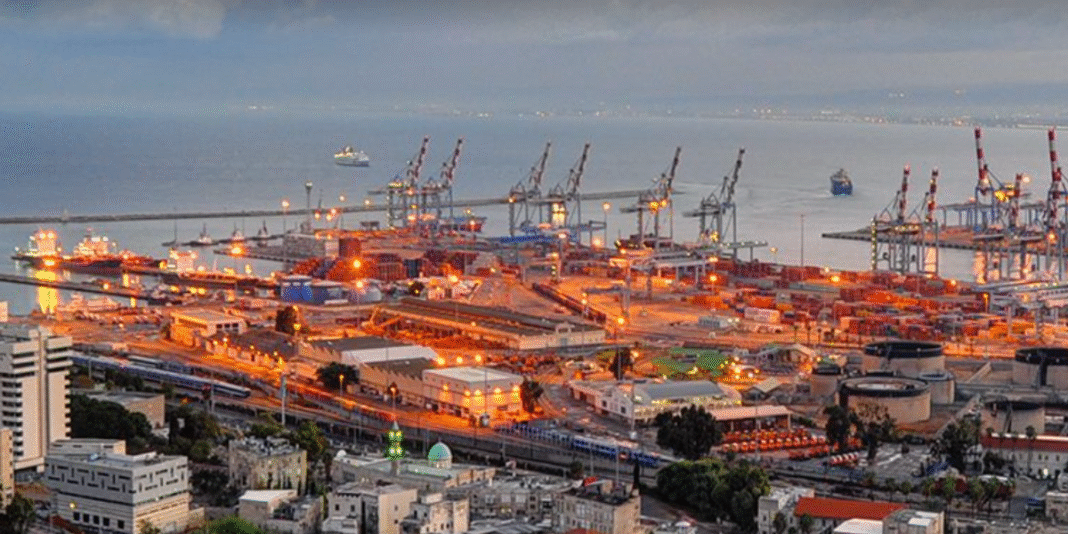Global containership operator Maersk today suspended vessel visits to Israel’s Port of Haifa and also stopped accepting new cargo bound for that destination, citing escalating violence in the Middle East.
Maersk said it had made the decision “after carefully analysing threat risk reports regarding the ongoing conflict between Israel and Iran – particularly the potential risks of calling specific Israeli ports and their implications for the safety of our crews.”
The move comes after Israel began bombing Iran a week ago, saying it feared the nation was drawing near to developing a nuclear weapon. Since then, Iran has retaliated, launching a daily exchange of missiles between the two countries, and President Trump has said that he may involve U.S. military forces in the region in the coming days.
The Port of Haifa says its total freight volume handled in 2023 included 11,702,000 tons of cargo and 736,138 twenty foot equivalent units (TEU) of shipping containers.
Supply chain analysts said the move could quickly have a domino effect on other nearby ports, as shippers seek alternate ways to move goods in and out of Israel.
“The port at Haifa is Israel’s busiest and most important link enabling international trade and exports as well as receiving and processing import containers supplying goods to the local population,” Gartner VP analyst David Gonzalez said in a note to clients. “Any degree of constraint to the accessibility of these and other ports in the region will add significant pressure to the remaining infrastructure as companies scramble to secure capacity and services to other entry and exit points across the region.”
Despite those impacts, Maersk said the move was necessary to safeguard its people, assets, and customers’ cargo in light of increased regional instability. The company said it is currently working with its impacted customers to provide alternative transport solutions to minimize disruption.


